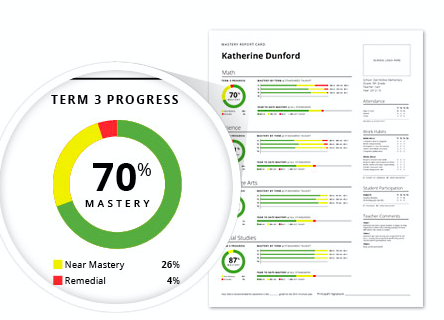Q: “How can I help keep my child on track with the work required in junior high?”
A: Students are provided a checklist in each of their classes that will help guide their learning and assist them in keeping track of their work. Copies of checklists can be found on each teachers’ blog and are due two weeks after they are given. This is similar to how the upper elementary works and supports self-directed learning, accountability and independence.
In keeping with the Montessori philosophy of Mastery Learning, not all required work will be given a grade because it does not demonstrate an understanding of the required content. but is necessary to complete in order to aide learning.
For example, a syllabus must be turned in, but is not given a grade. Notebooks and folders must be set up, but are not given a grade. In the real world we do work, because we know it needs to be done, not because someone is grading it. The work that needs to be done can be found on the checklists.Teachers do keep track of things that are missing and when checklists are turned in, the teacher will also make note on the students’ checklist that something is missing.
Q: “How do I know what grade my child has in each class?”
A: In a standards based system the traditional grade of “A, B, C, D and F” are not applicable. We measure proficiency of a standard in order to provide remediation or extensions of the learning.
For example a standard in Language Arts for 8th grade is:
Determine the meaning of words and phrases as they are used in a text, including figurative and connotative meanings; analyze the impact of specific word choices on meaning and tone, including analogies or allusions to other texts.
To measure this standard, Ms. Shilo will craft an assessment that determines whether students can independently understand and apply the meaning of the following metaphor found in the novel, Wonder.
“Your deeds are your monuments.”
If a student needs help understanding and articulating that this means that people will be remembered for their actions (either good or bad), then they would be Approaching Proficiency (or a level 2) for the standard for this grade level.
If a student understands this metaphor and can cite an example from their own life or find other examples of metaphors within the text or elsewhere, then the student would be at a Distinguished level of proficiency (or a level 4) for this standard.
If a student is not proficient, then reteaching will occur and they will have an additional opportunity to demonstrate their increased knowledge. Just like in the real world, if we fail our drivers ed exam on the first try, we can try again after we’ve studied more and improved our understanding.
Q: “Why isn’t the school using ASPIRE anymore?”
A: ASPIRE did not meet the schools philosophical needs. It averaged scores so that learning actually counted against students. It provided A-F scores and students were not focused on what they needed to do to improve their understanding but what they needed to do to improve their grade.
Mastery Connect, used by Alpine and Jordan school districts (along with a number of other Charter schools in Utah) is more in line with our needs to make the move toward the growth mindset of Standards Based Grading.
Because this is a new system, we will not be opening the parent and student portal until second semester (mid January). Until then, you and your student will keep track of work and proficiency by their checklists and/or direct communication with the teacher.
However, reports like the one below will be provided at the October Parent Teacher Conference and will allow us to have a conversation about the successes and challenges your student is having.

The exception to this is that 9th graders will have a traditional grade transferred from Mastery Connect at the end of each quarter in order for them to begin to earn a GPA towards their high school graduation.
This grade will be a direct correlation of their understanding of the grad level content (or in the case of students with an IEP, their personalized learning goals). It will not include extraneous things like whether a student brought in extra supplies and received extra credit (as is given in other traditional settings).
In the event that you feel as though your student’s grade or demonstration of mastery is not accurate please speak with your student’s teacher, advisor or Ms. Kacee.
As we learn this new program we will need your feedback so we can continue to grow towards our potential. Please communicate openly with the teachers or Ms. Kacee.
You can learn more about MMAs journey towards Mastery learning as well as the state of Utah’s current work in this area, by visiting the Mastery Learning and Grading link under the Resource tab. Or by clicking HERE
